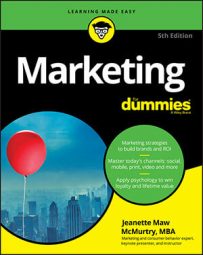Coca‐Cola has emerged as the beverage company in a league all its own and also one of the top brands globally for sales, loyalty, and brand respect. Currently, Coke has more than 100 million followers on its Facebook page. It became the leader of the happiness movement with its “Happiness” campaign that focused on delivering happiness to people in surprising ways around the world.
Coke’s content marketing and marketing content had no mentions of its product, just videos, ads, posts, and web and social content about how to find and share happiness. Subsequently, it has held a steady position as one of the top five brands for respect and revenue worldwide in listings by Interbrand and other top analyst groups.
Coke’s marketing focuses on happy moments in its costumers’ lives, putting Coke products at the center of their life’s best memories. And it has created interactions between various communities that have traditions of not understanding one another and helping them find happiness by bridging their differences.
Jon Haidt in his book The Happiness Hypothesis points out the five fundamentals of human happiness are
- Feeling connected to others
- Making a difference
- Associating with and experiencing “good”
- Reciprocity
- Fairness and justice
According to various studies from Edelman and Cone Communications:
- 71 percent claim, “I make a point to buy brands from companies whose values are similar to my own.”
- 80 percent are likely to switch brands when price and quality are about equal.
- 90 percent will quit buying from irresponsible, deceptive brands.
- 89 percent will buy from social/environmental‐driven brands.
- 80 percent will tell others about a company’s CSR effort.
- 76 percent will donate to a charity supported by a trusted brand.
- 72 percent will volunteer for a cause supported by a trusted brand.
Doing good matters if you want your business to do good now and in the future.
As pointed out by Jonathan Haidt’s list of five happiness factors, we find happiness most when we find a purpose and are engaged in fulfilling it. Consciously and unconsciously, people seek meaning in their lives and the need to actively make a difference and leave a personal legacy of good. Jung addresses this in his individuation process, and many studies on human behavior drivers validate that this instinctive need has not and is not likely to change.
Many people seek to find and fulfill a purpose, so much so that Rick Warren’s book The Purpose Driven Life: What on Earth Am I Here For? became the second most translated book in the world, behind only the Bible. Many consumers today seek purpose outside of the traditional methods of religion and volunteerism and seek to further it by the choices they make at the grocery store, online shopping carts, and more.
This new state of consumerism doesn’t just show that people still have a heart and soul; it’s a big flag to brands in all industries to integrate CSR, or corporate social responsibility, into their brand fiber, customer experience, and marketing programs.
So just what is “purpose,” and how can you integrate it into your marketing programs, experiences, and messages? Purpose is defined as a feeling of “determination to do or achieve something of importance.” Identifying a purpose that drives your core customers, and each of your customer segments, should be a top goal of your market research programs. A simple question such as “What moves you most?” can provide some key insights as to how you can gain trust, support, engagement, sales, and more from your customers.Toby Usnik, a philanthropic advisor and corporate social responsibility professional, with experience at Christie’s and American Express, rigorously studies how purpose affects brands and suggests that CSR has moved far beyond writing a check to a cause and then moving on. It’s about engaging with that cause in various ways to promote the good it does for the world and devoting your resources and intellectual talent rather than just a small percent of your revenue.
An article published in the March 21, 2015, edition of The Economist quoted Jack Welch, former CEO of GE, as saying “Pursuing shareholder value as a strategy was ‘the dumbest idea ever.’”
Although that might be debatable, it’s a big statement as to how critical it is that companies align their products and brands with what matters most to consumers today and find ways to engage with consumers, partners, and community leaders to further those issues and ideas. Statistics from many studies show that defining a brand’s purpose and acting on it is anything but “dumb” and actually one of the smartest things you can do.
Defining your brand’s purpose and corresponding CSR efforts is the first step to developing emotional and psychological bonds with internal and external customers. When you make your CSR actionable by engaging others in your cause, you can build passion and loyalty that defines not only your brand but also your profitability.
People are drawn to happiness that results from doing good in the world. TOMS, an example that is known to most as one of the pioneers in philanthropic branding, went from $9 million to $21 million in revenue in just three years by being a purpose‐driven brand that enables people to give back to others simply by making a purchase. With a cost of goods sold of around $9 and sale price of more than $60, that is not hard to do.The key to successful CSR programs and purpose‐driven strategies is sincerity. Anything less simply backfires. Brands must be sincere about caring to support worthwhile causes related to their field, and they must be sincere when involving customers in charitable giving.
Sincerity is shown not just by the money you donate but by the way you use your marketing channels, budget, and resources to further causes beyond your own and how you encourage others to join your cause or movement.
